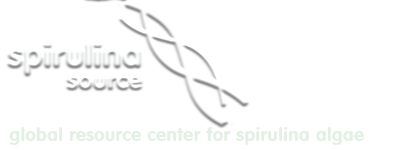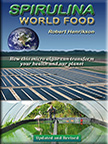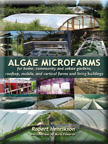REFERENCES AND ABSTRACTS BY HEALTH CATEGORY
Spirulina scientific reference library. Over 100 references covering 45 years of international research.
Click on PDF Download button for free pdf file.
![]() The Potential Role of Spirulina in Protection Against Radiation and its Effects
The Potential Role of Spirulina in Protection Against Radiation and its Effects
by Amha Belay Ph.D. March 2011.
During the Chernobyl nuclear accident, and now due to the recent Japanese earthquake-related nuclear accident, many people have asked us about some reports that they have read about the effect of Spirulina in protection against radiation related health problems. These studies refer to those made in Belarus using Spirulina donated by Earthrise. This introductory article is to present what is known about the effect of Spirulina on radiation related effects as presented in the scientific literature.
Means to normalize the levels of immunoglobulin E, using the food supplement Spirulina.
by L. Evets, et al. 1994. Grodenski State Medical Univ. Russian Federation Committee of Patents and Trade. Patent (19)RU (11)2005486. Jan. 15, 1994. Russia.
Immunoglobulin E (IgE) of children living in highly radioactive areas is greatly above normal. Studies with 270 children show that consuming about 5 grams per day of spirulina tablets normalized IgE within 6 weeks. Children not consuming spirulina did not change IgE levels. No side effects were observed. Spirulina lowers the amount of IgE in the blood, which in turn normalizes and reduces allergies in the body.
Radioprotective effect of extract from spirulina in mouse bone marrow cells studied by using the micronucleus test.
by P. Qishen, Kolman et al. 1989. In Toxicology Letters 48: 165-169. China.
The radioprotective effect of an extract of spirulina was studied using the micronucleus test in polychromatic erthrocytes of bone marrow in mice. The extract caused a significant reduction of the micronucleus frequencies induced by gamma radiation.
Spirulina- natural sorbent of radionucleides.
by L.P. Loseva and I.V. Dardynskaya. Sep 1993. Research Institute of Radiation Medicine, Minsk, Belarus. 6th Int’l Congress of Applied Algology, Czech Republic. Belarus.
Spirulina, a natural food supplement, reduced urine radioactivity levels by 50% in only 20 days. This result was achieved after giving 5 grams a day to children at the Institute of Radiation Medicine in Minsk, Belarus. The Institute has developed a program to treat 100 children every 20 days. This 1993 report confirms 1990-91 research on the beneficial health effects of spirulina on children with radiation sickness. It concludes: “Use of spirulina decreases radioaction dose load received from food contaminated with radionuclides, Cesium-137 and Strontium-90. Spirulina is favorable for normalizing the adaptative potential of children’s bodies in conditions of long-lived low dose radiation.”
Spirulina platensis and specialties to support detoxifying pollutants and to strengthen the immune system.
by L.P. Loseva. Sep 1999. Research Institute of Radiation Medicine, Minsk, Belarus. 8th Int’l Congress of Applied Algology, Italy. Belarus.
Main purpose of the study is researching the influence of spirulina platensis on the immune system on normalization of peroxide lipid oxidation and anti-oxidant activity, also on the content of long-life radionucleides. In the studies were involved children and teenagers residing in the areas with radiant pollution and people injured by the Chernobyl catastrophe. To achieve desirable results with spirulina it is recommended to take it during 3 months and if not continued, this course should be repeated in half a year again. Possible therapeutic mechanisms: a) The natural combination of nutrients supports the formation of non-absorbable complexes of radionucleides through analogues such as calcium, potassium, etc., and promotes their excretion. b) the general intake of easily digestible micro and macro elements of spirulina has a positive influence on many functions of the immune system.




